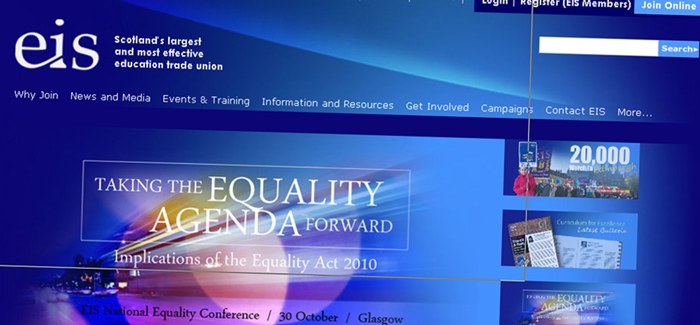Fears are growing that a strike by teachers could damage pupils’ chances as they head into important exams later this year.
The EIS, Scotland’s largest teaching union, is to ballot members and is recommending strike action over changes to its teachers’ terms and conditions after talks with the Scottish Government and council body COSLA to change them broke down.
The EIS is objecting to a proposed cut in sick pay and lower pay for those who stayed on promoted salaries when their posts were abolished 10 years ago.
A two-year salary freeze is also proposed. The EIS was also looking for guarantees on teaching numbers.
Although the prospect of industrial action remains a long way off, with the vote focusing solely on changes to pay and conditions, there are fears that a rejection of these could pave the way for strikes further down the line.
Senior pupils will sit their Standard and Higher grade exams in May and June.
After a meeting of members on Friday, David Farmer of the EIS Fife branch, which has 3500 to 4000 members said the EIS council has decided members will be balloted on strike action and the process will start next week.
“Basically there will be two questions, firstly whether or not members support or reject the COSLA proposals on teacher pay and conditions… and our call will be for rejection,” he said.
“The second part will be an indicative ballot on whether our members would be prepared to take industrial action, as I think it’s important that along with the idea of rejecting these COSLA proposals we do have an indicative ballot to gauge the strength of members’ feeling about it.
“There were certainly no dissenting voices today and I think the important thing for the EIS is to make sure we get a good turnout.Confident”I’m pretty confident that we will and that will get the message across that we need to be refusing these proposals and showing the Scottish Government and COSLA that we are concerned about these plans.”
Mr Farmer said the COSLA “shopping list” of proposals for changes to conditions including scrapping conserved salaries, closing the chartered teacher scheme, a cut in non-contact time, an increase in the timetable for probationers, a cut in the holiday entitlement for those on maternity leave and cutting payment for supply teachers had not gone down well with some.
However, a proposed 10% cut in payment for absence would affect every member.
Mr Farmer added, “There is going to be a review in the summer and we wonder, irrespective of the economics of it, about the logic of coming out with the shopping list now instead of waiting for the review.”
“After the ballot, we would obviously be looking to get back into discussion with the Scottish Government and COSLA but it’s important we make our views known.”
The EIS is also expected to hold a rally in late May or early June in protest at the proposals.
Fife Council declined to comment on the EIS stance.
Dundee’s education convener, Councillor Elizabeth Fordyce, said she hoped that an agreement can be reached before talk of a walkout can even be established.
She said, “I hope that everyone can sit round the table and talk.
“It’s the pupils that will suffer and parents that work will have to find childcare.
“It would be a catastrophic thing to happen, not just in Dundee but in any place.
“I don’t think our teachers would do it in a cavalier manner.
“They are very responsible and take their jobs very seriously.”Fair dealShe believes a fair deal will be struck before the possibility of schools locking their gates is mentioned.
“Hopefully a strike doesn’t happen and I don’t think it will,” she added.
“Maybe I’m optimistic but I think teachers understand what is happening with young people and how they’re working to pass exams. I would like to see all parties sitting around the table, talking and listening.”
This week, EIS president Kay Barnett urged members to reject the Scottish Government and COSLA proposals.
She said, “It is simply unacceptable for the Scottish Government to attempt to force through permanent and damaging changes to teachers’ terms and conditions.”
EIS Dundee press secretary Danny McDonald said he would be very surprised if local members did not reject the new pay and conditions.
He said, “At the moment, I can’t see any likelihood of teachers going for (the offer).
“We know the workforce is reducing and local authorities are reducing their budgets by cutting teacher numbers.”
